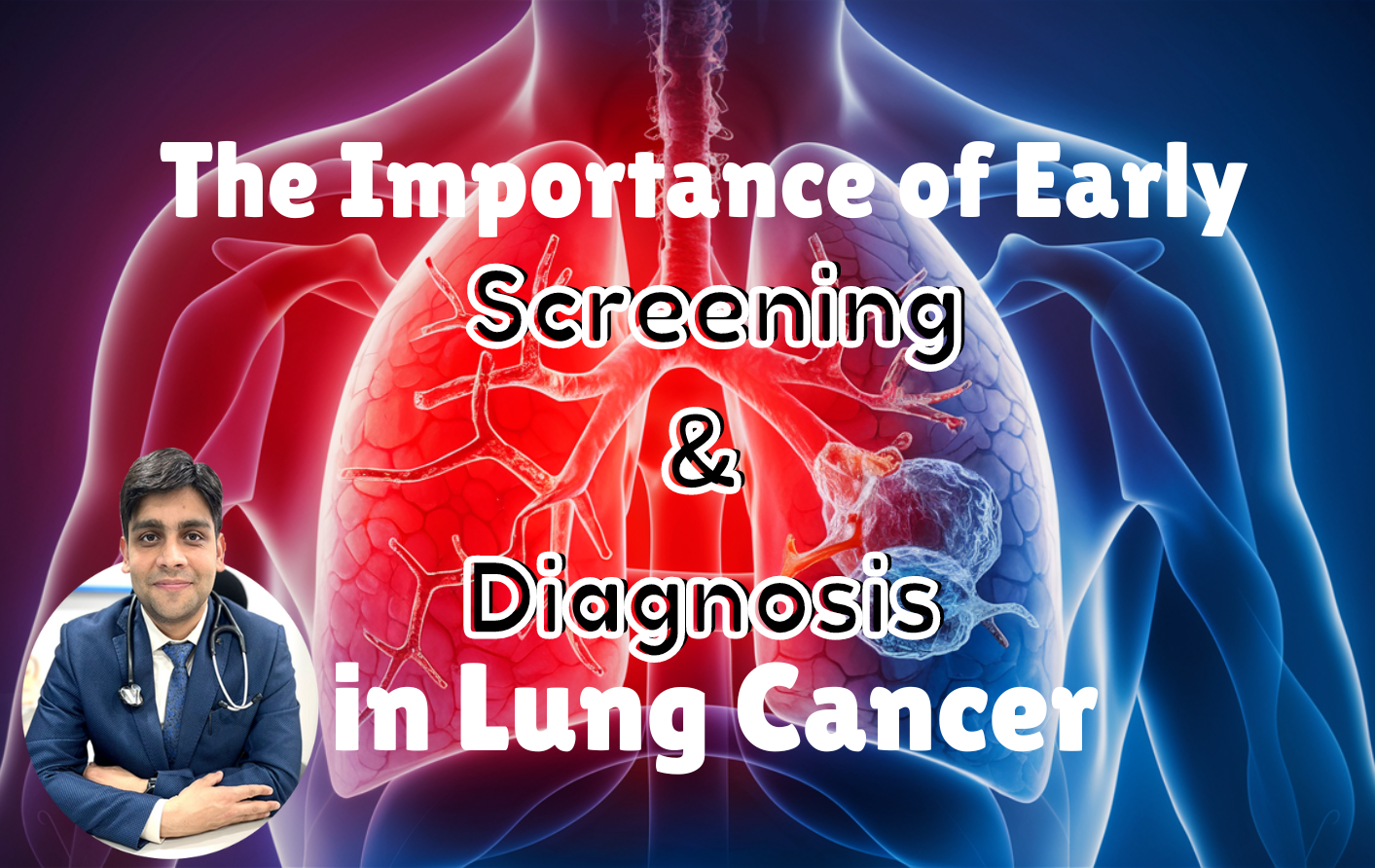
The Importance of Early Screening and Diagnosis in Lung Cancer
Introduction Early Screening and Diagnosis in Lung Cancer
Lung cancer is a major health concern in India, ranking as the fourth most common cancer overall and the second most common among males, according to GLOBOCAN 2022 data. With an estimated 81,000 new cases diagnosed annually, the disease also has a high mortality rate, causing approximately 75,000 deaths each year. A significant reason for this high mortality is late-stage diagnosis. Data from AIIMS in 2017 showed that around two-thirds of lung cancer cases are diagnosed at stage 4, with an additional 20% in stage III, where surgery is often not an option. Only 10-15% of cases are caught in the early stages (I and II) when there is a realistic chance of cure.
Why Early Screening is Crucial
Dr. Abhishek Raj, Senior Consultant & Head of Medical Oncology at Sarvodaya Hospital in Faridabad, emphasizes the importance of early diagnosis and screening. "Early detection through screening can significantly improve the chances of cure in lung cancer," says Dr. Raj. Screening involves tests to detect disease in asymptomatic individuals, thus preventing mortality. Established screening tests for other cancers include mammography for breast cancer, PAP smears for cervical cancer, and colonoscopy for colon cancer.
Lung Cancer Screening: Challenges and Solutions
Screening for lung cancer is challenging due to the reliance on computed tomography (CT) scans, which involve radiation exposure and require repeated testing. To address this, low-dose CT (LDCT) scans have been developed, offering significantly less radiation exposure. Studies have shown that annual LDCT scans in individuals aged 50-80 with a history of significant smoking (over 20-30 pack years) can detect lung cancer early and reduce mortality.
However, Dr. Raj notes the issue of overdiagnosis. Small nodules detected on LDCT scans may lead to further invasive investigations, such as biopsies, especially in a country like India, where lung infections like tuberculosis are prevalent. "These benign nodules can sometimes be mistaken for cancer, causing unnecessary stress and healthcare costs," he adds. Therefore, individuals with a significant smoking history should consult with experts to make informed decisions about annual LDCT screening.
Diagnosis of Lung Cancer
The diagnosis of lung cancer involves various modalities, including CT scans, bronchoscopy, and guided needle biopsies. PET-CT scans are also used to assess the extent and spread of the disease. Common symptoms include persistent cough, chest pain, blood in sputum, shortness of breath, weight loss, and voice changes. These symptoms are non-specific and can also occur in other conditions. Dr. Raj advises that people with a history of smoking who experience these symptoms should seek medical advice promptly.
Risk Factors and Prevention
Tobacco smoking is the leading cause of lung cancer, responsible for 80-85% of all cases. Other risk factors include exposure to second-hand smoke, asbestos, radon gas, air pollution, and genetic predisposition. The risk increases with the number of cigarettes smoked and the duration of smoking.
Preventing lung cancer requires raising awareness about the dangers of smoking. Smoking not only increases the risk of various cancers but also cardiovascular diseases, hypertension, diabetes, and mental health issues. Targeting youth and adolescents, who are more likely to develop smoking habits, is crucial. Professional help, counseling, and medications can aid in smoking cessation. While nicotine itself is not a carcinogen, it is highly addictive and exposes smokers to 70 other carcinogens found in cigarette smoke. Nicotine patches and gums can help reduce cravings.
Second-hand smoking also poses a significant risk. Studies have confirmed that inhaling smoke from others increases the risk of lung cancer. It is essential to educate the public about these dangers.
Conclusion
Early screening and diagnosis are vital for improving outcomes in lung cancer. With the best lung cancer treatment in Faridabad, individuals can significantly increase their chances of survival. Consulting with the best cancer doctor in Faridabad ensures comprehensive care and informed decision-making.
FAQs
What are the benefits of early lung cancer screening?
Early screening can detect lung cancer before symptoms appear, increasing the chances of successful treatment and survival.
Who should consider lung cancer screening?
Individuals aged 50-80 with a significant history of smoking (20-30 pack years) should consider annual low-dose CT scans.
What are the risks associated with lung cancer screening?
The primary risks include exposure to radiation and the potential for overdiagnosis, leading to unnecessary tests and anxiety.
What is the most common cause of lung cancer?
Tobacco smoking is the leading cause, accounting for 80-85% of all lung cancer cases.
Can second-hand smoke cause lung cancer? Yes, exposure to second-hand smoke is an established risk factor for lung cancer.
By emphasizing the importance of early screening and diagnosis, we can work towards reducing the mortality rate of lung cancer in India. For those seeking the best lung cancer treatment in Faridabad, consulting the best cancer doctor in Faridabad is crucial for comprehensive and expert care.